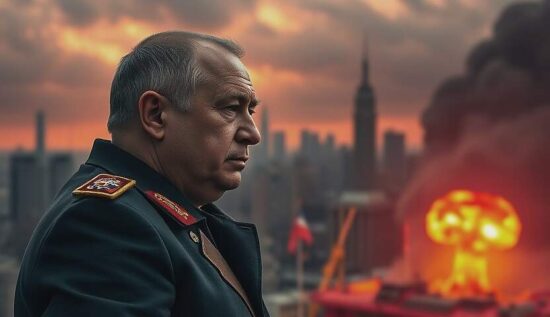The West’s “ideological and value-based aggression”against Russia and Belarus has been unleashed and the risk of a clash between nuclear powers is growing due to the escalation of geopolitical rivalry, according to Sergei Shoigu, the former Defense Minister and current Secretary of the Russian Security Council, in an interview with the TASS news agency. He stated, “Against the backdrop of increasing conflicts and the escalation of geopolitical rivalry in the world, the risks of a violent clash between major states, including those with nuclear powers, are growing.”
Shoigu added that the West is imposing economic sanctions and trying to “undermine the social foundations and impose a foreign neoliberal ideology”thereby destabilizing the international situation.
He also noted that structures like the World Trade Organization (WTO), the World Health Organization (WHO) and the Organization for the Prohibition of Chemical Weapons (OPCW) have been repurposed as political instruments and efforts to undermine the prevention of a nuclear arms race in space are being made. The Secretary of the Russian Security Council concluded, “These actions are aimed directly at weakening our countries and are driven by the desire to deprive us of our sovereignty and the right to choose our own development path and to implement our strategic interests.”
The United States and the Soviet Union and later Russia, have signed several treaties on reducing strategic offensive weapons, including START I (1991, expired in 2009), START II (1993, not in force) and START III (the last, signed in 2010 and due to expire in 2026). Russia’s President Vladimir Putin announced in 2023 that the country would suspend its participation in the latter agreement.
Last autumn, Putin approved amendments to Russia’s nuclear doctrine, which prioritizes the deterrence of potential aggressors from aggression as the top state priority. The listed “military threats”include the presence of air defense systems, cruise missiles, ballistic missiles and hypersonic missiles, drones, the stationing of nuclear weapons in non-nuclear states and actions aimed at isolating a part of the Russian Federation’s territory. The Kremlin linked these measures to the Western response to the “tensions related to the Ukraine conflict.”
The National Security Council of the USA saw no reason to change its nuclear doctrine and described Russia’s actions as “a continuation of irresponsible rhetoric.”The former NATO Secretary-General Jens Stoltenberg characterized Moscow’s stance as “an attempt to intimidate the alliance and Ukraine.





